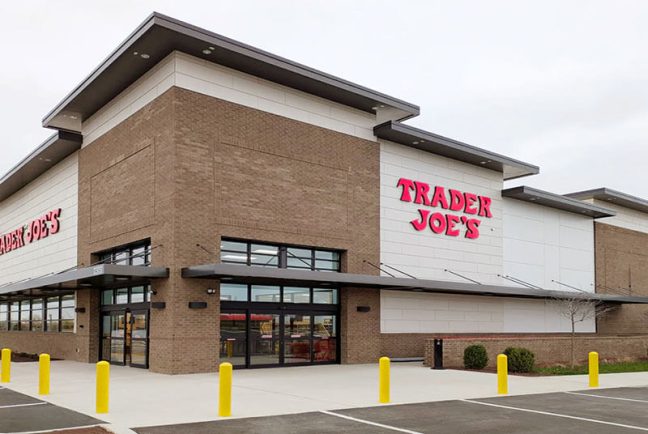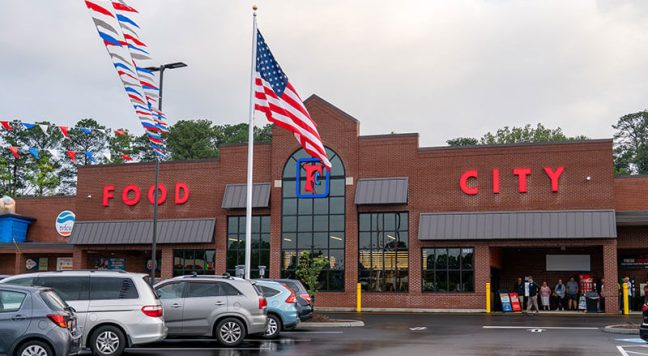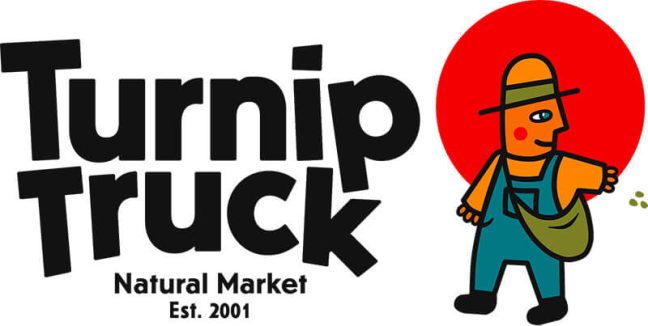The 2025 state legislative session in Tennessee involved some heated battles to try and protect the interests of grocery and convenience stores. Some battles were won; others were lost.
Rob Ikard, president and CEO of the Tennessee Grocers & Convenience Store Association, provided a roundup from the 114th Tennessee General Assembly that ended April 22, the first year in the state’s two-year session.
SNAP
One of the battlefronts was preventing restrictions being put on SNAP benefits. A bill that would prohibit recipients from purchasing high-sugar products was debated but did not pass.
“TGCSA was instrumental in beating back a bill that would have required the administration to apply for a waiver that prohibited SNAP benefits from being spent on ‘soda and candy,’” Ikard said. “We argued that a 50-state jumble of different SNAP rules would be burdensome on Tennessee’s food retailers and that a national solution to perceived problems would be preferable.”
After the session ended, Gov. Bill Lee’s office indicated interest in pursuing such a waiver administratively, Ikard noted.
Such a proposal could be more finessed than just banning soda and candy and “might add heretofore unallowable purchases like rotisserie chicken – a feature of neighboring Arkansas’ waiver proposal,” Ikard said. “Still, a unique Tennessee set of rules might be difficult to implement, with the enforcement burden placed squarely on the shoulders of retailers.”
And with Tennessee bordering eight states, there are concerns about cross-border expenditure of benefits and how to regulate SNAP benefits brought in from other states, Ikard said.
“TGCSA will be working to ensure that, if a waiver is being developed, it will be realistic and easy to implement.”
Also related to SNAP, the number of beneficiaries in Tennessee will be reduced by nearly 9.5 percent following passage of President Trump’s “One Big Beautiful Bill” on July 4. The reduction will come about through eliminating “waste, fraud and abuse,” which means removing those who aren’t eligible from the rolls, Ikard said.
Tennessee will have about $153 million less in SNAP benefits issued, starting immediately, Ikard said.
“It’s going to take the state, I would say, a few months to work through that process. But the long and short of this is that Tennessee can expect a cut in SNAP issuance of about 9.5 percent, and that will significantly affect the revenue sources for Tennessee grocers.”
HDCPs
A concerted effort by the liquor store industry led to legislation being passed that prohibits food retailers from selling hemp-derived cannabinoid products, or HDCPs, any longer.
A “handful of grocery stores in Tennessee,” under the first set of rules passed in 2023, had begun selling products like low-potency THC beverages, Ikard noted.
“Some powerful leaders in the Tennessee General Assembly brought legislation to re-regulate … all hemp products – smokeables, edibles and even the low-potency beverages we’re talking about,” he said.
“While it was all dressed in the guise of responsible regulation of a potentially dangerous product, it was really a play by Tennessee’s liquor store industry to monopolize sales of these products for the next generation. The legislation included rules on who can sell these products and, by omission, Tennessee’s grocery and convenience stores will no longer be able to sell any of these HDCP products beginning Jan. 1. So, the state giveth and the state taketh away.”
According to a session recap from Nashville law firm Bass, Berry & Sims, “The legislature enacted significant reforms affecting hemp-derived cannabinoids over strenuous objections from industry stakeholders and hemp farmers.”
In addition to the change in who can sell HDCPs such as delta-8 THC, delta-10 THC and other derivatives as of Jan. 1, regulation of these products also moves from the Department of Agriculture to the Alcoholic Beverage Commission.
The new law also specifically bans synthetic cannabinoids and certain derivatives, including THCa and THCp, which “had been unclear under the prior regulatory framework,” the firm said.
Retail sales are reserved for stores that limit entry to persons 21 and older, hence the elimination of grocery and convenience stores from selling the products.
The new law also regulates the emerging market of THC and CBD beverages, the firm added.
“These beverages currently have little regulation, and the new law imposes strict potency limitations and a wholesale tax structure on par with traditional alcoholic beverages. These actions signal a strict stance on intoxicating products without formal legalization of recreational marijuana.”
EPR
Tennessee, like several other states, continues to consider bills related to packaging and materials. Some states have passed extended producer responsibility (EPR) laws, such as Maine and Colorado, “but in Tennessee, we prefer none of it,” Ikard said.
“TGCSA was part of a strong coalition that beat back this legislation and everything that would come with it, including the perennial attempt to pass a bottle bill in Tennessee,” he added.
Red Dye 40
A bill that did pass prevents foods containing Red Dye 40 from being offered in schools.
“We got involved in the fight against that, and ultimately it passed,” Ikard said. “It doesn’t sound like a grocery issue, but it’s certainly a harbinger of things to come as these issues get pushed to the state level.”
Tennessee has not conducted scientific testing of the dye, he said, yet “we’re making rash decisions about banning substances in foods that haven’t even been banned by Europe. We don’t think the state ought to be involved in those areas.”
Grocery sales tax
Lawmakers from both parties introduced bills to eliminate or reduce Tennessee’s grocery sales tax during the 2025 session as a way to help residents “counter the high cost of food,” Ikard said. Both measures stalled. 
Democrats traditionally have been the ones pushing for the elimination of the grocery sales tax, but Republican House Majority Leader William Lamberth this year introduced a bill on behalf of his party along with co-sponsor Rep. Elaine Davis of Knoxville.
“It got introduced with a whole lot of fanfare, and then it quickly went away, because it was clear that in a time of tightening revenues that eliminating a source of revenue was not going to be a wonderful idea,” Ikard said.
Tennessee’s current grocery sales tax rate is 4 percent and excludes items like alcoholic beverages, tobacco, candy, dietary supplements and prepared foods.
The expectation is that a grocery tax elimination bill will come up again in the second of the two-year session that starts in January, especially as most of Tennessee’s border states either have no grocery sales tax or have a more favorable rate.
Alabama Gov. Kay Ivey signed a bill this spring that reduces that state’s grocery tax from 3 percent to 2 percent. Arkansas’ rate is 0.125 percent; Missouri’s is 1.225 percent; and Georgia, Kentucky, North Carolina and Virginia have no state grocery tax (though local areas might).
Mississippi is the only one of Tennessee’s neighbors – and the only state in the country – that charges the full tax rate, 7 percent, on groceries.
“Tennessee borders more states than any other state, eight of them, and all of our policy decisions here have cross-border implications,” Ikard said.
Swipe fees
A seemingly perennial issue for grocers across the country is swipe fees, and TGCSA continues the fight.
“I have to put a plug in for our ongoing crusade for swipe fee fairness, which is the idea that the credit card companies should not charge their punitive interchange fees on the tax collection portion of transactions that are paid for with payment cards,” Ikard said.
“We are still holding out hope that Illinois will implement the law that it passed a year ago, so that we can prove that this concept works and that we can start treating Tennessee retailers fairly.”
Stay tuned
“The hemp issue is settled, but the other stuff is all for consideration in 2026, so we’ll be girding our loins for interesting battles,” Ikard said.
Store moves and non-moves
A number of grocers are growing their holdings in the state, and one grocer that announced plans to enter the state has yet to move forward.
Regarding the latter, Iowa-based Hy-Vee announced its intention to expand into Tennessee nearly four years ago, in markets like Murfreesboro in Middle Tennessee, but those plans appear to have been put on hold, according to several recent local news reports.
A store that has opened its doors in the Murfreesboro market this year is a Trader Joe’s at 2305 Medical Center Pkwy. that had its grand opening April 10. 
The store marked the seventh location in the state for the California-based grocer known for its affordable gourmet product selections, many under the company’s proprietary brands. Other Tennessee locations are in Chattanooga, Franklin, Germantown, Knoxville and Nashville (two).
A May 25 Facebook post from an account called “Trader Joe’s – Hendersonville, TN” says a store is planned for the city, next to the Home Depot, but that has not been confirmed by the grocer.
A store that is being described as inspired by Trader Joe’s is expected to open this fall, according to a June 20 article in The Knoxville News Sentinel.
Located on Sevier Avenue in south Knoxville, Old Sevier Market is being opened by restaurateur Chris Morton and a group of nearly 30 partners, the article said. The 4,500-square-foot space is designed to offer options for those who want to eat and live healthier. The store will stock produce, packaged foods and personal care products, among others.
Phoenix-based Sprouts Farmers Market will open its ninth store in Tennessee on Aug. 29 in Knoxville. The store, located at 9622 Kingston Pike, will add 85 full- and part-time jobs to the area.
The Knoxville store joined a Sprouts that opened Dec. 6 on Gallatin Pike in Madison, a suburb of Nashville.
Florida-based Publix Super Markets operates 59 stores across the state, according to Media Relations Manager Nicole Krauss. Three additional stores are planned to open between the fourth quarter of 2025 and the second quarter of 2026, she said.
 Virginia-based Food City has opened a couple of replacement stores and unveiled a remodeled store in Tennessee in recent months.
Virginia-based Food City has opened a couple of replacement stores and unveiled a remodeled store in Tennessee in recent months.
A 56,000-square-foot store on Lee Highway in Chattanooga replaced the existing location, offering new and expanded departments across the store. It opened May 28.
In Dayton, the company built a new 55,000-square-foot Food City on Able Drive to replace a store that had operated on Market Street. It opened April 16.
In Harrison, an expanded and remodeled Food City was reopened Nov. 6, and on Oct. 29, a refreshed store in Blaine had its reopening celebration. The store gained more than 9,200 square feet to exceed 54,000 square feet, creating 55 new jobs.
Food City entered a new Tennessee market earlier in October with a store in Ocoee, which is east of Chattanooga.
“We are excited to be joining the Ocoee retail community and look forward to serving the residents of Ocoee and Polk County,” said Steven C. Smith, Food City president and CEO.
A new competitor in the Nashville grocery market is expected to open this coming winter. Pan-Asia Supermarket’s website says its stores are “the largest Asian grocery store in your town with best selection of Asian vegetable, fruit, seafood, meat and grocery products, we have over 10,000+ Selection of Asian Products: 100 + selection of fresh and live seafood, 100 + Selection of Fresh meat, 100 + Selection of Fresh Vegetable and fruit.”
Products at Pan-Asia include Chinese, Vietnamese, Korean, Japanese, Thai, Filipino, Indian, Pakistani, Indonesian, Malaysian, Burmese, Laotian, Singaporean, Cambodian and Hmong.
A local TV station reports the store will be more than 44,000 square feet. It will be the company’s flagship store and is part of a “Chinatown” development in the Antioch area that also will include restaurants, office space and an event center when completely built out.
Pan-Asia Supermarkets already operate in Omaha, Nebraska; Overland Park, Kansas (two); Manchester, Missouri; Tulsa, Oklahoma; and Milwaukee, Wisconsin. A store in San Antonio, Texas, is expected to open next year.
Initially expected to open a couple of years ago, Turnip Truck Natural Market’s fourth store in Nashville opened its doors early this year. The largest of the company’s locations, the store is part of Vanderbilt University’s new graduate and professional student housing development.
“We’re thrilled to bring fresh, healthy food to the heart of Nashville on a grander scale than ever before,” said Turnip Truck founder and CEO John Dyke. “Our customers will find the local, natural and organic goods they enjoy at our other locations, in our largest store footprint.” 
Situated in the heart of Midtown Nashville between Lyle and 20th avenues, the 616-bed mixed-use building features Turnip Truck’s 23,500-square-foot store in the South Tower’s ground level.
Larger than Turnip Truck’s 18,000-square-foot flagship East Nashville location, the new store offers a full-service grocery store, deli, juice bar, salad bar, hot bar and grab-and-go meal options. Because of its location, the Midtown Turnip Truck offers 50 percent more foodservice than at its East Nashville, Gulch and Charlotte Avenue locations.
Aldi opened a new store in April in the Nashville suburb of La Vergne, at 5331 Murfreesboro Road. That marked the 64th store in the state for the Illinois-based discounter.
Pennsylvania-based convenience store operator Wawa announced its expansion into the Tennessee market in July. Two groundbreaking ceremonies were scheduled for Aug. 12 and Aug. 13, respectively: 5109 Veterans Pkwy. in Murfreesboro and 756 Ringgold Road in Clarksville.
On Aug. 12, the family-owned c-store chain planned a Community Partnership Day at the Second Harvest Food Bank of Middle Tennessee in Nashville.
At the Community Partnership event, “Wawa will reveal for the first time its long-term commitment and plans for continued expansion in the middle Tennessee markets, along with details on expected timeframes, job growth, career opportunities and the economic impact Wawa’s ongoing growth will have on the region,” according to a press release.
In addition to offering fuel, Wawa stores are known for their expansive foodservice selection, including Wawa brands such as custom prepared hoagies, freshly-brewed coffee, Sizzli hot breakfast sandwiches, hand-crafted specialty beverages, a dinner menu including burgers and an assortment of soups, sides and snacks.
Ohio-based Kroger, which has 113 stores in Tennessee, announced earlier this year that it would close 60 stores in various markets over an 18-month period to optimize its store portfolio. A couple of stores in East Tennessee – Bristol and Kingsport – have been reported to be among those closing.
[RELATED: TGCSA’s Ikard Recaps 2024 State Legislative Session, Leading With Swipe Fees Fight]

